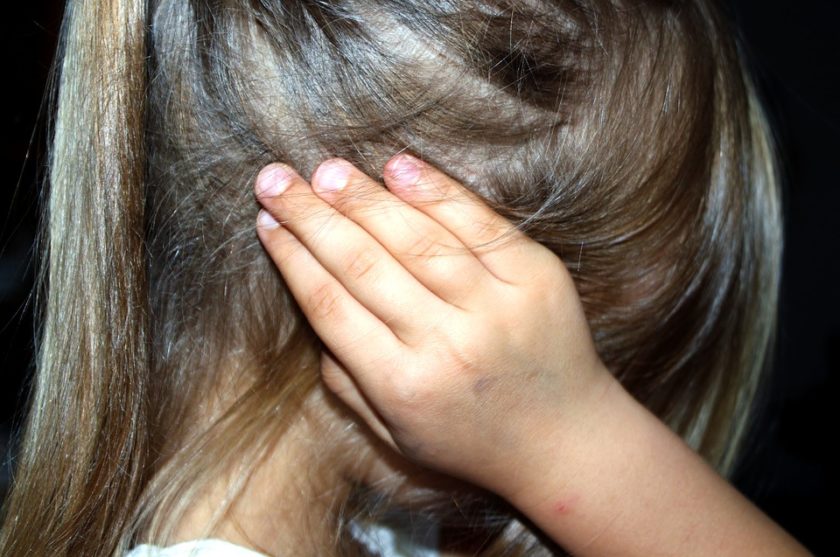Gaslighting is a tactic used by someone to psychologically manipulate a victim into doubting their sanity. Gaslighting is a horrific form of abuse and is most commonly seen between intimate partners, but it’s also experienced in parent and child relationships. This is frightening, as usually, a parent isn’t aware of the harmful damage they’re doing to their child’s welfare.
Authors, Damien W. Riggs and Clare Bartholomaeus of a study on gaslighting in parent-child relationships for the Flinders University, Melbourne, say,
“Gaslighting in practice is often subtle and can be difficult to detect, especially in the context of parent-child relationships, where imbalances of power are often a taken-for-granted norm.”
This difficulty in understanding and identifying what gaslighting looks like between a parent-child relationship is why parents are often guilty of unintentionally doing it.
 (Image sourced: Pixabay)
(Image sourced: Pixabay)
A scenario of what gaslighting can look like, according to 1800RESPECT anonymous counselling services, can be as simple as a mother losing track of time and is now running late to drop their toddler to daycare. It is not the toddler at fault but nonetheless, the mother insists on saying, “We’re going to be late to daycare because you have been mucking around! Quick get in the car now and behave yourself!”
This is a rather common situation in the life of a mother, but according to 1800RESPECT anonymous counselling services, when such words are spoken to a child it positions them to question their actions and teaches them that they’re troublesome and disobedient.
Other ways a parent may unknowingly gaslight their child is by exaggerating conflict. Minor wrong-doings by their child are blown out of proportion. An issue as small as a child lying about brushing their teeth sets the parent off in a way that makes the child question whether there is any sense and logic to their anger.
 (Image sourced: Pixabay)
(Image sourced: Pixabay)
In response to the parent acting out, the child will start to keep to themselves and steer clear, as they never know what will trigger or infuriate the parent. The child may also begin to start lying to their parent to avoid the constant put-downs, as they feel like they can’t do right by their parent.
Robin Stern, associate research scientist at the Child Study Centre in Yale, identifies these responses in his book, The Gaslight Effect: How To Spot and Survive Hidden Manipulation Others Use to Control Your Life, as the two warning signs that a victim is being gaslit.
Mocking of your child’s behaviour is a harmful action which is a form of gaslighting. This situation might involve – a child being upset because they want chocolate at the supermarket, but they already have a lolly. The child begins to cry louder because she wants chocolate as well as a lolly, and the parent becomes frustrated by the loud whining in public and mocks the child, “Wah, wah, wah, I want chocolate, but I already got a lolly. Well too bad!”
This humiliates and distresses the child and ultimately, invalidates their feelings.
A parent’s over-assertion of power when their child begins to grow older is another form of gaslighting. When a parent starts to sense their child is making decisions for themselves that they may not agree with, they begin to feel fearful that their kid no longer needs them.
To combat this, a parent might begin to speak poorly about the child’s newly formed school friends by telling them they don’t think they’re “good enough” for them. This sends their child the message that they are helpless without their parent’s guidance. In turn, the child isolates themselves from friends and family.
 (Image sourced: Pixabay)
(Image sourced: Pixabay)
Self-isolation was one of the warning signs that Stern identifies in his book that victims of gaslighting do.
It is important to be educated and aware of what gaslighting can in parent-child relationships in both large and small forms. 1800RESPECT anonymous counselling services say the effects of this psychological abuse leave a child feeling anxious, insecure, and distressed, which causes them to develop both inferiority and trust issues.
Children that are victims of gaslighting at a young age grow up feeling unsure of their place in the world, which subsequently alludes to them questioning themselves, their worth, and their own sanity.
If you or someone you know needs more information or support around gaslighting call – 1800respect counselling services – 1800737732 or visit their website https://www.1800respect.org.au/



